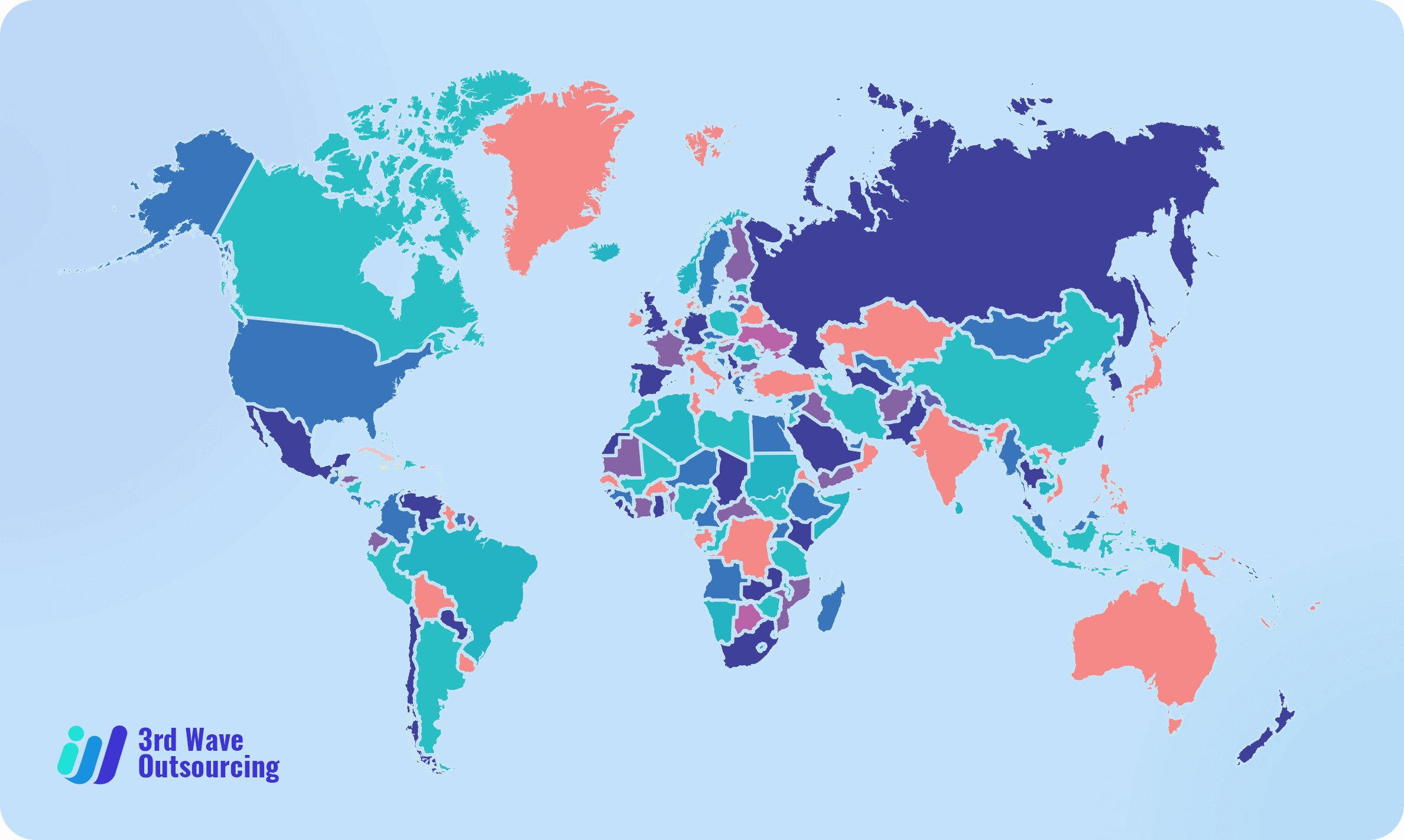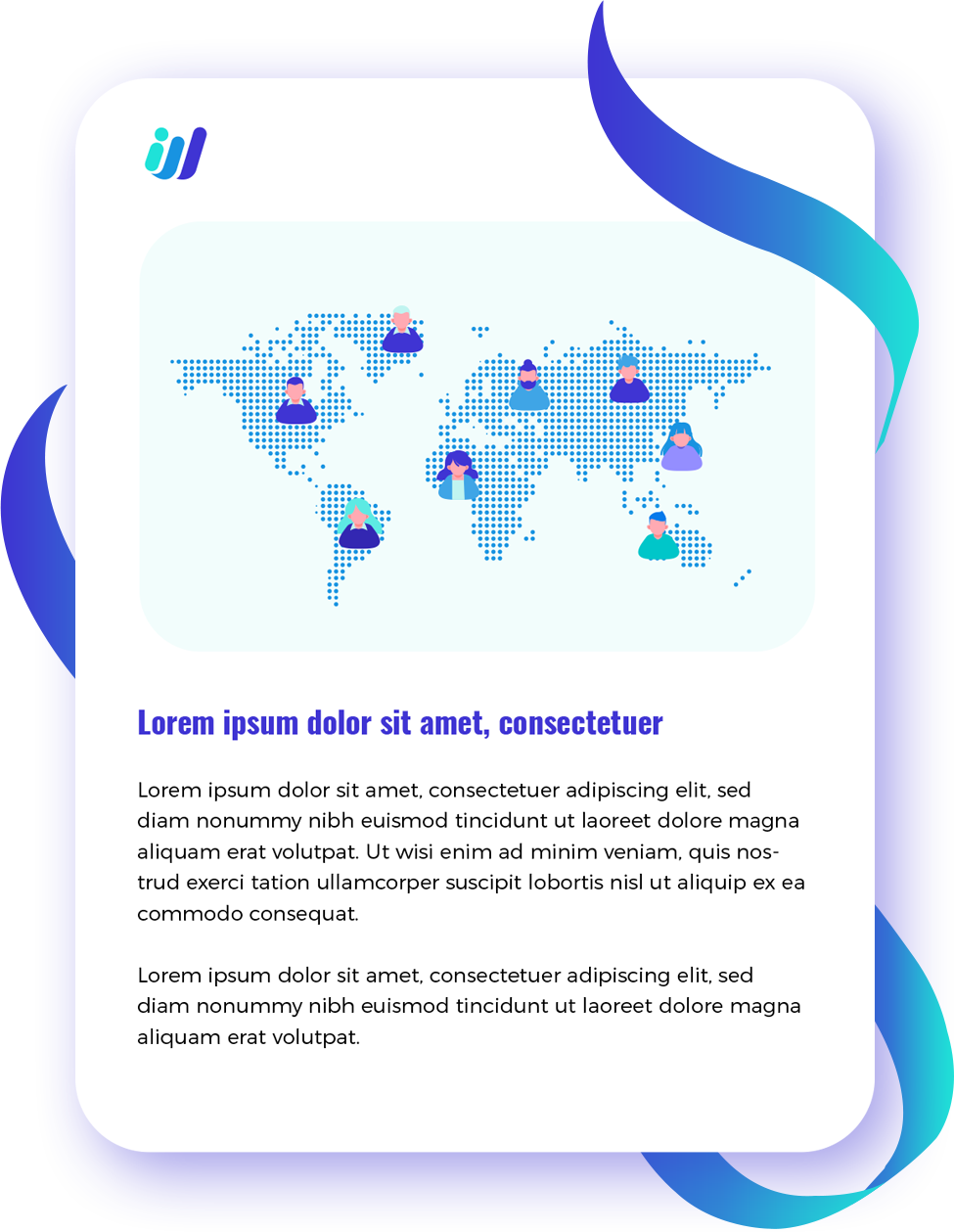Geographical and geopolitical risk is a significant concern for companies who outsource their IT and business services. The term “geopolitical risk” refers to the instability of political regimes and other factors that can impact your ability to conduct business in a particular country or region. Geopolitical risk is also known as “country risk.”
Geographical risk goes beyond the existence of bad countries.
Geographical risk is a risk to your business that comes from the location of your data, employees, or customers. It’s not just about bad countries; geographical risk can also be mitigated by outsourcing to a good country.
Geographical risk is different from political and social risks because it does not necessarily mean that you will have less business in a certain segment of the world (e.g., China). Geographical risks are more likely to affect companies based on where they operate rather than their ethics or values—even if those companies do everything right within their own industry norms and regulations.
Geopolitical risk arises from political instability, natural disasters and war. The same can be said for currency volatility and environmental crises, as well as social unrest and unemployment.
Geographical and geopolitical risks are increasing.
Geographical and geopolitical risks are increasing due to the increasing globalization of business, but also because there is an increased interconnectedness between markets and economies. Geographical risk has become more complex over time, as companies have expanded into other countries, making them vulnerable to political instability or natural disasters that affect their supply chains. For example:
- In 2011, BP’s Deepwater Horizon oil rig exploded after it was hit by an underwater explosion. The spill affected not only Louisiana but also Texas and Florida as well as Canada (where BP has its headquarters).
- In 2016 British American Tobacco announced it would close one of its factories in Nottinghamshire due to economic conditions such as Brexit; this decision caused thousands of job losses across Europe.
- In 2017 Toyota recalled 2 million vehicles worldwide because they had defective airbags which could explode when deployed during an accident; this led to massive recalls in North America & Japan where customers waited weeks before getting replacement cars.
Companies are expanding their global presence to reduce geographical and geopolitical risks.
Expanding global presence allows companies access to better talent, markets and capital. Companies may also be considering moving their operations offshore but this is not always an easy decision. For example:
- If the company has a large number of employees in one country then relocating them may be costly due to transportation costs as well as possible relocation costs from other countries where you want your workforce located (ex. Relocation fees).
- It can take time for new workers’ skillset acclimation which means that they may not perform at the same level initially but will eventually catch up with their colleagues’ performance levels over time if sufficient training opportunities are given during this period.
Relationships matter more than ever when it comes to mitigating risk.
The rise of geopolitical and geographical risk has prompted a shift in how companies approach their relationships. In the past, most companies would have relied on third-party insurance coverage for business interruption or property damage emergencies. But with the rise of geopolitical and geographical risk, it makes more sense to look at your relationships as a way to mitigate these types of risks.
When you think about it, this makes sense: If a company is unable to rely on another party’s help when it comes time to recover from an unexpected event (such as natural disaster or terrorist attack), then they may end up losing all their data or having major problems operating their business because they don’t have any other options available besides relying solely on someone else’s help.
Consider all risk factors before making an outsourcing decision, including the future stability of the country.
Geographical and geopolitical risks are real. They can be managed, but they’re increasing at an ever-increasing rate.
Geographical and geopolitical risks are different from other types of risk: they don’t have a single cause or solution, so it’s difficult to predict what will happen next in your area of operation.
Geographical and geopolitical risks tend to be less tangible than other types of risk factors (e.g., financial), which makes them more difficult to quantify accurately or assess adequately on a large scale—for example, when calculating overall cost savings or ROI (return on investment).
Geographical and geopolitical risks are real, but they can be managed through strong relationships and good vendor management. Good vendor management includes:
- Having a strong relationship with the vendor
- Being clear about what is expected of the vendor
It’s important to remember that geographical and geopolitical risk are not insurmountable. Companies can manage these risks by building strong relationships with their global partners, as well as by diversifying the sourcing of vendors via subcontracting arrangements and using suppliers from multiple countries. Importantly, these efforts must be communicated throughout your supply chain so that everyone understands what they need to do when evaluating a new supplier or partnering with an existing one.
When done right, outsourcing sparks startup success, increases the chance for thriving, and clears the path toward sustainable and guaranteed growth. Let us help you find top talents in IT, technical support, digital marketing, and cloud services so you can leverage all the benefits of outsourcing in the new normal. Request a FREE copy of the e-book on Third Wave Outsourcing .



